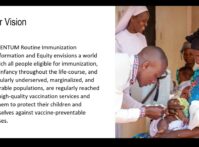-
ECSP Weekly Watch | December 11 – 15
December 15, 2023 By Angus Soderberg
A window into what we are reading at the Wilson Center’s Environmental Change and Security Program
COP28 Extension Produces a New Agreement
In the closing moments of COP28, the almost 200 countries in attendance settled on a deal for a roadmap that would include a reference to “phasing out fossil fuels.” This language was a step toward highlighting the inevitability of this transition in order to address climate change.
Parties in Dubai engaged in intense negotiations over the inclusion of a call to “phase down” or “phase out” fossil fuels in the conference roadmap, which extended the gathering beyond its scheduled close. The final agreement commits to tripling renewable capacity and doubling energy efficiency by 2030, as well as calling for progress in adaptation and finance.
While the deal represents a huge step forward in its recognition of the harmful impacts of fossil fuels, some have criticized the agreement. They argue that the conference roadmap allows for loopholes, including the allowance of “transitional fuels”— as well as lacking concrete provisions on adaptation and finance. UN Climate Chief Simon Stiell stressed that COP28’s initiatives are a starting point, however, and not an endpoint.
READ | Gaza, Yemen, Syria, Human Rights, and Oil: The Elephants in the COP28 Room
A Deepening Water Crisis in Yemen
Authors of a recent Human Rights Watch report have found that the ongoing conflict in Yemen has exacerbated a water crisis that has existed in the city of Taizz since 2015. At present, only 21 of the city’s 88 wells operational.
Yemen already faces high rates of water scarcity, with 15.3 million Yeminis (or over 50% of the country’s population) lacking access to sufficient water supplies. Taizz has been on the front lines of a conflict in the country for years, and found it difficult to access adequate water supplies even prior to the war.
Split control over resources lies at the heart of the problem. Houthis have weaponized the city’s water, while Yemeni government-affiliated forces have sold water supplies for profit in pursuit of an advantage. Yet both parties’ actions have harmed the ability of civilians to meet their basic needs.
READ | Water @ Wilson Event | Water, Peace, & Security: New Tools for a New Climate
Amid Global Turmoil, South Sudan Must Not Be Overlooked
More than half of South Sudan’s population faces hunger due to climate change, conflict, and economic hardships, with an estimated 1.6 million of its children expected to suffer from acute malnutrition between July 2023 to June 2024.
Indeed, the nation is experiencing one of the world’s worst food insecurity emergencies, with about 25,000 people facing catastrophic hunger. The number of hungry people in South Sudan could rise to nearly 80,000 without urgent support. Overall, 7.1 million people, or 56% of the population, are experiencing high levels of food insecurity.
Humanitarian efforts to alleviate the crisis are hindered by funding cuts, forcing the reduction of support and rations. Urgent access to climate funds and sustained support are crucial for South Sudan to address the compounding effects of conflict, climate change, and economic crisis.
READ | Is Environmental Peacebuilding the Answer to South Sudan’s Conflict?
Sources: Human Rights Watch, USAID, WFP, UNFCCC
 A Publication of the Stimson Center.
A Publication of the Stimson Center.








